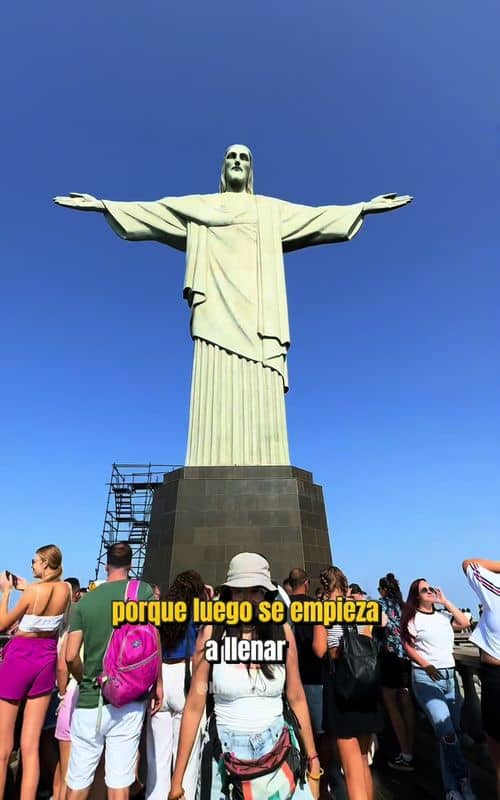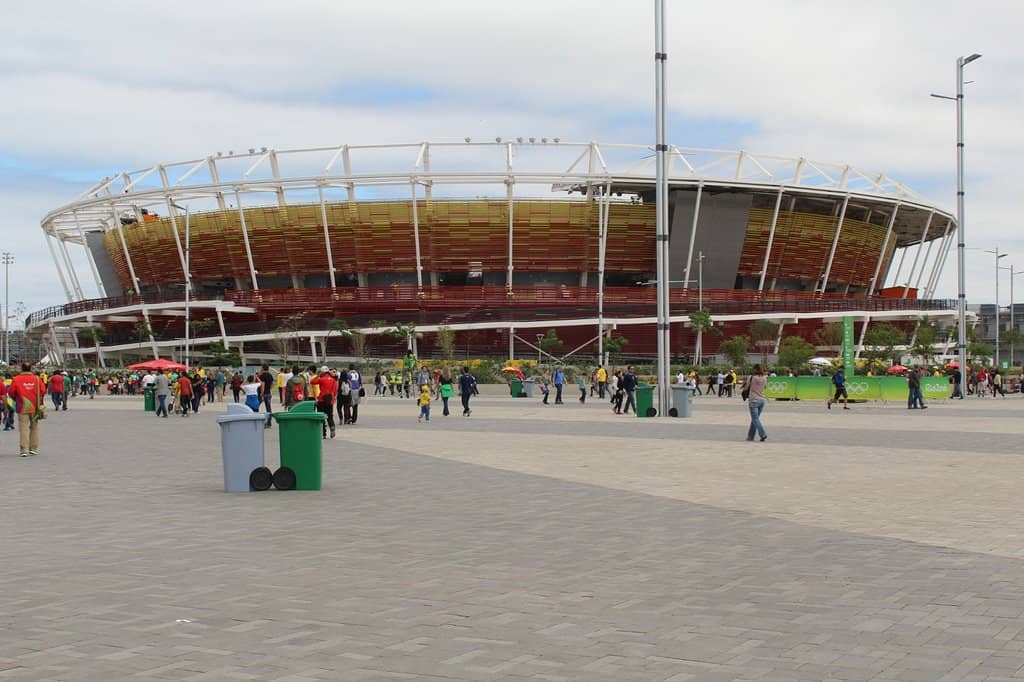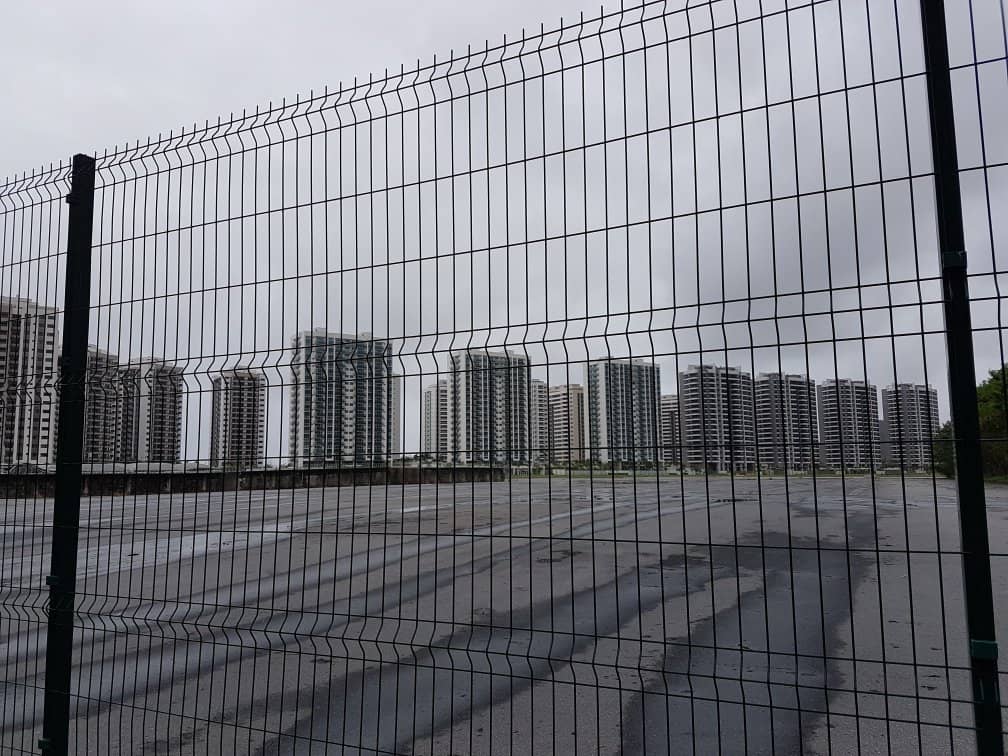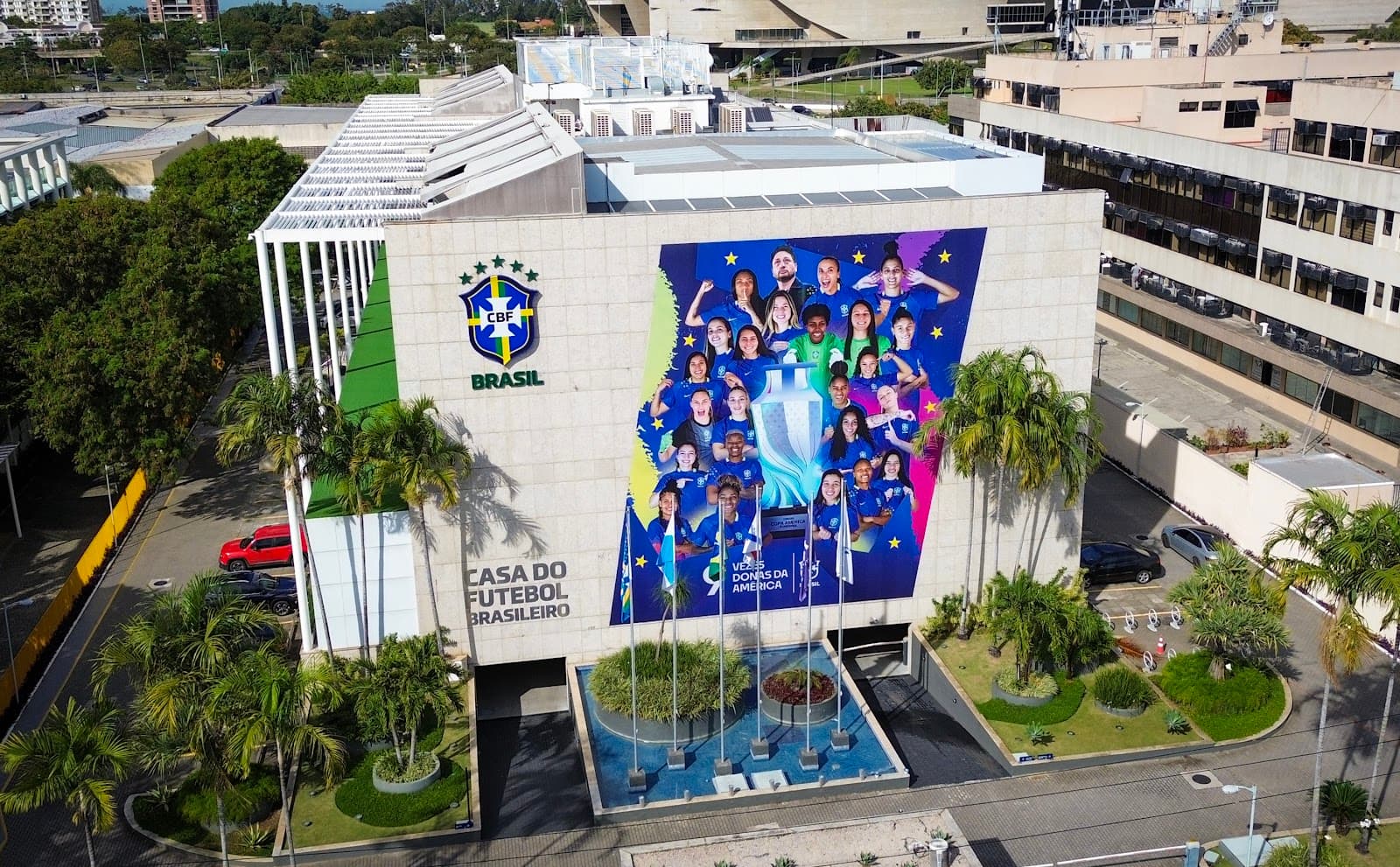
Rio Olympic Park
A sprawling complex built for the 2016 Rio Olympics, now a public park and venue for major events.

Highlights
Must-see attractions

Social
From TikTok & Reddit
Best Time
Experience the park's full energy

Rio Olympic Park
Best Time
Experience the park's full energy

Highlights
Must-see attractions
A sprawling complex built for the 2016 Rio Olympics, now a public park and venue for major events.
"Interesting place to see even years after Olympics, with a living legacy."

Check Event Schedule
Verify upcoming events to plan your visit and potentially catch a concert or game.
Wear Comfortable Shoes
You'll be doing a lot of walking to explore the vast park grounds. :athletic_shoe:

Highlights
Discover the most iconic attractions and experiences

Olympic Way & Rita Lee Park
Stroll through public spaces dedicated to sport and recreation, a living legacy of the 2016 Games.

Maria Lenk Aquatic Center
Home to the Brazilian Olympic team's training, this center offers a glimpse into elite athletic preparation.

Olympic Stadium (Estádio Olímpico Nilton Santos)
A key venue from the Games, now hosting major sporting events and concerts.
Plans like a pro.
Thinks like you
Planning Your Visit
Embrace the Legacy
Event-Driven Visits
Best Times
Insider Tips
from TikTok, Instagram & Reddit
Check Event Schedule
Verify upcoming events to plan your visit and potentially catch a concert or game.
Wear Comfortable Shoes
You'll be doing a lot of walking to explore the vast park grounds. :athletic_shoe:
Stay Hydrated
Rio can be hot and humid; bring water or know where to refill. :droplet:
Consider Public Transport
Getting to the park via metro or bus can be more convenient than driving. :bus:
Tips
from all over the internet
Check Event Schedule
Verify upcoming events to plan your visit and potentially catch a concert or game.
Wear Comfortable Shoes
You'll be doing a lot of walking to explore the vast park grounds. :athletic_shoe:
Stay Hydrated
Rio can be hot and humid; bring water or know where to refill. :droplet:
Consider Public Transport
Getting to the park via metro or bus can be more convenient than driving. :bus:
What Travellers Say
Reviews Summary
Rio Olympic Park is seen as an interesting place with a significant legacy, particularly for sports enthusiasts and event-goers. While some find it eerily empty and underutilized, others appreciate its ongoing role as a public park and venue for major concerts like Rock in Rio. The park's potential is recognized, though its current state can feel underused outside of scheduled events.
"One of the best public parks at the city of Rio, with a stunning view at the end of the walking path from the Barra da Tijuca lake."
Alan Araruna
"Feels eerie and abandoned I wish I got to see it around 2016 when the Olympics were here. I went here to visit another Olympic park and the few workers there were confused why I was even there. Like um it’s an Olympic village. It’s still very pretty just shocking to see it so empty and not used."
Rob McDougall Travels
"This place is destroyed
It is ok fro some rock concerts but so sad they let it get ruined."
Etienne M
What People Like
What People Dislike
Frequently Asked Questions
🚇 🗺️ Getting There
The Rio Olympic Park is accessible via public transport. The closest metro station is Jardim Oceânico, from where you can take a bus or a taxi to the park. Many visitors opt for ride-sharing apps for convenience.
Parking is available, but it can be limited, especially on event days. It's often recommended to use public transportation or ride-sharing services to avoid parking hassles.
The park is quite spread out. Walking is feasible for shorter distances, but for covering larger areas, consider using the park's internal shuttle services if available, or be prepared for a significant amount of walking.
Like any large urban area, it's wise to be aware of your surroundings. Stick to well-lit areas, especially at night, and be mindful of your belongings.
Yes, ride-sharing apps like Uber are widely used in Rio and can be a convenient way to get to and from the Olympic Park and navigate within larger areas if needed.
🎫 🎫 Tickets & Entry
Entry to the general park areas like Olympic Way and Rita Lee Park is typically free. However, specific venues or events within the park, such as concerts or sports championships, will require separate tickets.
Tickets for events are usually sold through official event websites or authorized ticketing platforms. It's best to check the specific event organizer's details for purchasing information.
The park grounds are generally accessible during daylight hours. However, specific venue operating hours and access may vary, especially on non-event days. It's advisable to check the official Rio Olympic Park website for the most current information.
While official guided tours might be limited, you can explore the park independently. Some private operators may offer tours, especially focusing on the Olympic legacy.
Some venues, like the Maria Lenk Aquatic Center, might offer limited access or tours, but many are primarily used for scheduled events. It's best to inquire directly with the venue management or check the park's official schedule.
🎫 🏟️ Onsite Experience
You can explore public spaces like Olympic Way and Rita Lee Park, visit the Maria Lenk Aquatic Center, or attend sporting events and concerts. It's a hub for sports and recreation.
Yes, the open park areas are great for families to walk around and enjoy. However, specific event venues might have age restrictions or be more suited for older children.
Restrooms and some food and beverage options are typically available, especially during events. It's wise to bring your own water and snacks if you plan to spend an extended period exploring the grounds.
Photography is generally allowed in the public areas of the park. However, restrictions may apply inside specific venues or during certain events, so always check signage.
The park serves as a lasting legacy of the 2016 Olympic Games, with many venues repurposed for public use, sports, and cultural events, promoting an active lifestyle.
🍽️ 🍽️ Food & Dining
Food and beverage options are usually available within the park, particularly during events. These can range from concession stands to more established eateries.
Expect typical event fare like snacks, fast food, and drinks. If attending a major concert like Rock in Rio, there will be a wide variety of food stalls.
Bringing outside food and drinks might be restricted, especially for ticketed events. It's best to check the specific rules for the event or venue you are visiting.
Options can vary greatly depending on the specific vendors present. It's advisable to inquire at the food stalls or check event-specific information if you have dietary needs.
The surrounding areas, especially Barra da Tijuca, offer a wide range of restaurants, cafes, and bars if you prefer to dine outside the park.
📸 📸 Photography
The Olympic Way, the exterior of the arenas, and the general park grounds offer good photo opportunities. Drone shots can capture the scale of the complex.
Drone usage is often restricted in and around large public venues and stadiums due to safety and security regulations. It's crucial to check local drone laws and park policies before flying.
While general photography is usually permitted, professional photography or filming may require special permits. Always be mindful of signage and event-specific rules.
Early morning or late afternoon offers softer light and fewer crowds, making for more pleasant photography conditions.
The distinctive architecture of the various arenas, the Olympic rings (if still displayed), and the overall layout of the park are key photographic subjects.
For Different Travelers
Tailored advice for your travel style
👨👩👧 Families with Kids
Consider visiting during daylight hours for a relaxed experience. If attending an event, check the family-friendliness of the specific show or game beforehand. The sheer scale of the park can also be an exciting aspect for children, offering a sense of wonder about the Olympic Games.
⚽ Sports Enthusiasts
Even if there isn't a specific event, exploring the park allows you to appreciate the architecture and scale of the facilities that hosted the 2016 Olympic Games. It’s a chance to connect with the spirit of athletic achievement and the enduring legacy of the Olympics.
🎶 Music & Event Goers
Beyond Rock in Rio, the park's arenas host various concerts and sporting championships throughout the year. Always check the official event schedule and venue guidelines for information on what to bring, entry times, and any specific rules for attendees.
Deep Dives
In-depth insights and expert knowledge
The Olympic Legacy: More Than Just Arenas
Beyond these public areas, many of the original arenas continue to host major events. The Maria Lenk Aquatic Center remains a hub for elite athletes, and the Olympic Stadium (Estádio Olímpico Nilton Santos) is a popular venue for concerts and football matches. This ongoing use ensures the park remains a dynamic part of Rio's cultural and sporting landscape, rather than becoming a forgotten relic.
Visitors can experience this legacy by exploring the grounds, attending an event, or simply appreciating the scale and ambition of the project. It's a chance to connect with the spirit of the Olympics and see how a city embraces its sporting heritage.
Navigating the Park and Its Events
When attending events like concerts or sports championships, familiarize yourself with the specific venue's entry requirements, prohibited items, and seating arrangements. Many visitors recommend checking the event schedule in advance to make the most of their visit. For major events like Rock in Rio, be aware of potential pickpocketing and take precautions to safeguard your belongings.
Even on non-event days, the park offers a pleasant environment for walking and enjoying the open spaces. Comfortable footwear is essential, as the park is extensive. Staying hydrated is also important, especially during Rio's warmer months.






Social
from TikTok, Instagram & Reddit